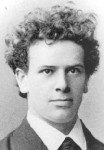More on how Franz Boas and other jews flocked to anthropology specifically to oppose a racial understanding of human nature.
The purpose of anthropology is to make the world safe for human differences. – Ruth Benedict
Anthropology has from the beginning been dominated by jews. The purpose of jewish anthropology is to make the world safe for jews. One of the main tactics jews use is to disguise what they’re doing as a high-minded pursuit of more general interests.
A good example is found in Herbert S. Lewis’ The Passion of Franz Boas (PDF), published in “American Anthropologist” journal Volume 103, Issue 2, pages 447–467, June 2001.
Lewis defends Boas from criticism made by the children of the anti-“racist” revolt he led. The core of this defense is a recounting of Boas’ life-long efforts to thwart an understanding of reality which assigns significance to race. Some children of the revolution see Boas himself as a “racist” because he did not deny the existence of race. Others complained that he was only promoting jewish (or “white”) interests.
By the 1960s the many facets of the thoroughly though cryptically judaized culture of critique had pathologized and demonized and prevailed (at least in intellectual/academic circles) not only over “racist” Nordic champions such as Madison Grant, but Whites generally. As jewish involvement increased they shifted the understanding of race from real, to insignificant, to imaginary, to the self-contradictory anti-White/anti-“racism” of today – where “race” is supposedly a construct of the evil White race, who used (and still uses!) it to exploit and oppress all the other, innocent “people of color” (i.e. everyone who isn’t White).
Lewis’ defense amounts to the argument that Boas did great service at the start of this progression. His hand-waving and smoke-blowing was, as usual for jews, used to obscure the Who/Whom – who was served by whom and at whose expense – behind a pretense that everyone benefited.
Lewis concludes by quoting Michel de Montaigne:
I see most of the wits of my time using their ingenuity to obscure the glory of the beautiful and noble actions of antiquity, giving them some vile interpretation and conjuring up vain occasions and causes for them. What great subtlety! Give me the most excellent and purest action, and I will plausibly supply fifty vicious motives for it. God knows what a variety of interpretations may be placed on our inward will, for anyone who wants to elaborate them.
This criticism applies all the more to contemporary anti-“racist” interpretations of the White men who were beginning to understand the significance of race. Boas and his tribe have prevailed, for a while at least, by pathologizing and demonizing their enemies while disguising their own motives, thus obscuring the racial nature of the conflict.
One substantial criticism of Boas and the broader jewish influence in anthropology and social science was ignored by Lewis.
Kevin MacDonald’s The Boasian School of Anthropology and the Decline of Darwinism in the Social Sciences, is Chapter 2 in “Culture of Critique”, subtitled “An Evolutionary Analysis of Jewish Involvement in Twentieth-Century Intellectual and Political Movements”, first published in 1998:
Several writers have commented on the “radical changes” that occurred in the goals and methods of the social sciences consequent to the entry of Jews to these fields (Liebman 1973, 213; see also Degler 1991; Hollinger 1996; Horowitz 1993, 75; Rothman & Lichter 1982). Degler (1991, 188ff) notes that the shift away from Darwinism as the fundamental paradigm of the social sciences resulted from an ideological shift rather than from the emergence of any new empirical data. He also notes that Jewish intellectuals have been instrumental in the decline of Darwinism and other biological perspectives in American social science since the 1930s (p. 200). The opposition of Jewish intellectuals to Darwinism has long been noticed (Lenz 1931, 674; see also comments of John Maynard Smith in Lewin [1992, 43]). 1 In sociology, the advent of Jewish intellectuals in the pre–World War II period resulted in “a level of politicization unknown to sociology’s founding fathers. It is not only that the names of Marx, Weber, and Durkheim replaced those of Charles Darwin and Herbert Spencer, but also that the sense of America as a consensual experience gave way to a sense of America as a series of conflicting definitions” (Horowitz 1993, 75). In the post–World War II period, sociology “became populated by Jews to such a degree that jokes abounded
It was jews who were joking.
An endnote refers to Lenz’s observation concerning the “jewish fondness for Lamarkism”:
The jewish inclination toward Lamarckism is obviously an expression of the wish that there should be no unbridgeable racial distinctions.
MacDonald adds:
The obvious interpretation of such sentiments is that Jewish intellectuals opposed natural selection because of possible negative political implications. The suggestion is that these intellectuals were well aware of ethnic differences between Jews and Germans but wished to deny their importance for political reasons—an example of deception as an aspect of Judaism as an evolutionary strategy (SAID, Chs. 6–8).
Lenz states that the Jewish opposition to discussion of race “inevitably arouses the impression that they must have some reason for fighting shy of any exposition of racial questions.”
Back to MacDonald’s main text:
This chapter will emphasize the ethnopolitical agenda of Franz Boas, but it is worth mentioning the work of Franco-Jewish structuralist anthropologist Claude Lévi-Strauss because he appears to be similarly motivated
Lévi-Strauss interacted extensively with Boas and acknowledged his influence (Dosse 1997 I, 15, 16). In turn, Lévi-Strauss was very influential in France
Levi-Strauss’s most significant works were all published during the breakup of the French colonial empire and contributed enormously to the way it was understood by intellectuals. . . . [H]is elegant writings worked an aesthetic transformation on his readers, who were subtly made to feel ashamed to be Europeans. . . . [H]e evoked the beauty, dignity, and irreducible strangeness of Third World cultures that were simply trying to preserve their difference. . . . [H]is writings would soon feed the suspicion among the new left . . . that all the universal ideas to which Europe claimed allegiance—reason, science, progress, liberal democracy—were culturally specific weapons fashioned to rob the non-European Other of his difference. (Lilla 1998, 37)
Degler (1991, 61) emphasizes the role of Franz Boas in the anti-Darwinian transformation of American social science: “Boas’ influence upon American social scientists in matters of race can hardly be exaggerated.” Boas engaged in a “life-long assault on the idea that race was a primary source of the differences to be found in the mental or social capabilities of human groups. He accomplished his mission largely through his ceaseless, almost relentless articulation of the concept of culture” (p. 61). “Boas, almost single-handedly, developed in America the concept of culture, which, like a powerful solvent, would in time expunge race from the literature of social science” (p. 71).
Boas did not arrive at the position from a disinterested, scientific inquiry into a vexed if controversial question. . . . There is no doubt that he had a deep interest in collecting evidence and designing arguments that would rebut or refute an ideological outlook—racism—which he considered restrictive upon individuals and undesirable for society. . . . there is a persistent interest in pressing his social values upon the profession and the public. (Degler 1991, 82–83)
The podcast will be broadcast and available for download on Tuesday at 9PM ET.
Podcast: Play in new window | Download













